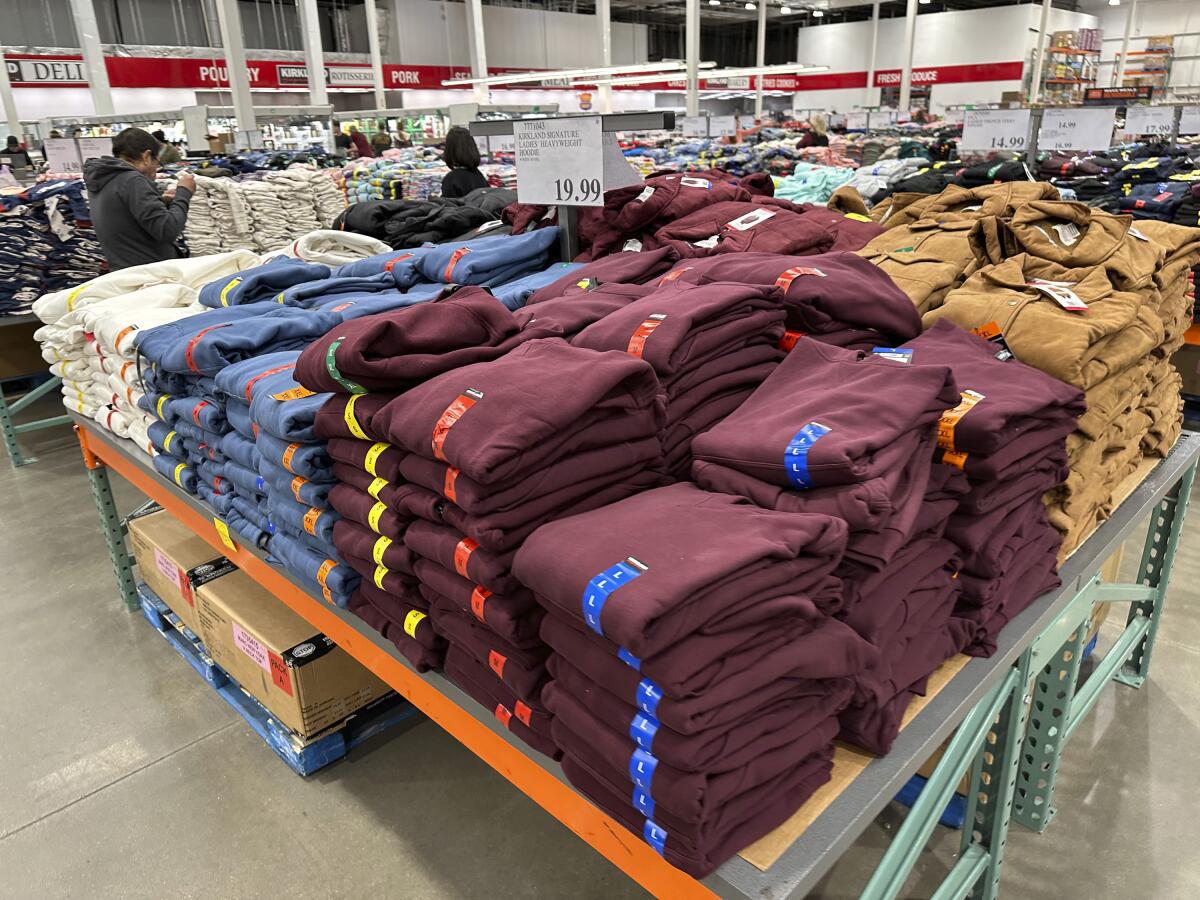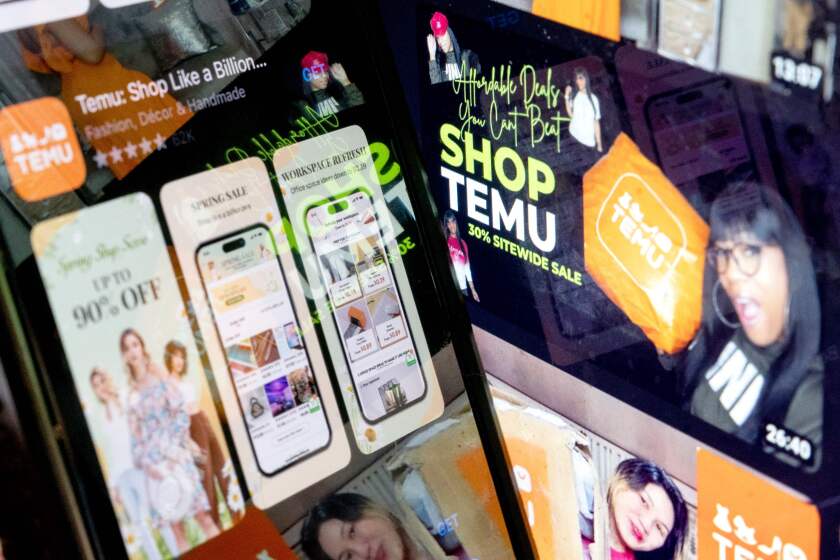Retail sales fall 0.8% in January as shoppers pause after strong holiday season

- Share via
Americans pulled back their spending more than expected in January after the traditional holiday season splurge.
Retail sales fell 0.8% in January from the strong pace in December when they rose a revised 0.4%, according to the Commerce Department’s report Thursday. Excluding sales at auto dealerships and gas stations, sales were down 0.5%.
The decline was bigger than the 0.1% drop that economists expected and marked the lowest monthly figure since March of last year.
Economists attributed part of the pullback to snowy weather conditions, but they also said the slowdown shows that shoppers may finally be buckling under higher interest rates and other financial hurdles and that the economic momentum from the end of 2023 could be starting to fade.
Excluding autos, gas, building materials and restaurant meals, the so-called control group of sales — which is used to calculate economic growth — fell 0.4% in January. Economists expected an increase.
Ever since TikTok launched its in-app shopping feature, creators have flooded the platform with product testimonials. Why are they so dang convincing?
The retail sales report could offer positive news that the Federal Reserve could finally start to cut rates, bringing relief to shoppers and businesses seeking lower rates for borrowing.
“Real consumption appears to have declined in January and, even allowing for a recovery over February and March, growth will slow sharply in the first quarter,” Andrew Hunter, deputy chief U.S. economist at Capital Economics, wrote in a report. “The upshot is that Fed officials may not need to worry much longer about the possibility of continued economic resilience reigniting inflation.”
Despite higher borrowing costs and elevated prices, household spending continues to be fueled by a strong job market and rising wages.
There was another surprising burst of hiring to start off 2024 as employers added 353,000 jobs in January, more evidence that the highest interest rates in two decades, intended to slow the economy, have yet to take hold.
But last month’s slowdown was widespread as shoppers cut back their spending in nine of 13 categories.
Chinese shopping app Temu is now the most downloaded app in the United States. But it’s raising red flags for lawmakers who are suspicious of Chinese-owned apps that collect reams of American consumer data.
Business at clothing and accessory stores was down 0.2%, while sales at health and personal care stores fell 1.1%. Sales at building material and garden supply stores fell 4.1%, reflecting bad weather. Business at general merchandise stores was unchanged. Online sales fell 0.8%. But a solid gain at restaurants showed that spending on services remains sturdy, analysts said.
Consumer inflation in the United States cooled last month yet remained high, and the U.S. reported this week that the consumer price index rose 0.3% from December to January. Compared with a year earlier, prices are up 3.1%.
That’s far below the 9.1% inflation peak in mid-2022, but above the Fed’s 2% target level, making it a possibly pivotal issue in President Biden’s bid for reelection.
Major retailers including Walmart and Macy’s are slated to report financial results for the fiscal fourth quarter, which includes the crucial holiday period, in the next few weeks.
But weaker sales at some of the big food and beverage companies could forebode weakening sales at stores.
Sure, the city will pick up trash and basic recyclables. But the rest of your junk? For a fee, Ridwell promises to dispose of it — and your consumer guilt.
Kraft Heinz reported Tuesday that fourth-quarter sales slipped as some customers, pinched by a bout of inflation, traded down to cheaper brands or did not buy as much.
A number of food makers, citing inflation, have raised product prices and that has helped preserve profits. But that can come at a cost to sales as some customers look for bargains elsewhere.
Last week PepsiCo, which makes snacks and drinks, experienced a similar trade-off after multiple price hikes; it posted a rare decline in revenue.
Bill Barton, chief executive of Bob’s Discount Furniture, said that the chain of more than 170 stores has been the beneficiary of shoppers trading down from department stores to less expensive furniture options.
Barton noted that the Manchester, Conn.-based company is able to keep costs down by offering fewer choices than department stores but going deep in inventory. The starting price for bedroom sets at Bob’s is $999.
But Barton said shoppers are still cautious about spending on big-ticket items because of higher borrowing costs. And still-high mortgage rates for homes have also damped furniture sales.
“The impact of rates coming down would definitely improve furniture sales,” he said. ”It would certainly be good for the furniture category to take some pressure off the consumer in multiple ways.”
The government’s monthly retail sales report offers only a partial look at consumer spending; it doesn’t include many services, including healthcare, travel and hotel lodging.
AP writer Christopher Rugaber contributed to this report.
More to Read
Inside the business of entertainment
The Wide Shot brings you news, analysis and insights on everything from streaming wars to production — and what it all means for the future.
You may occasionally receive promotional content from the Los Angeles Times.













